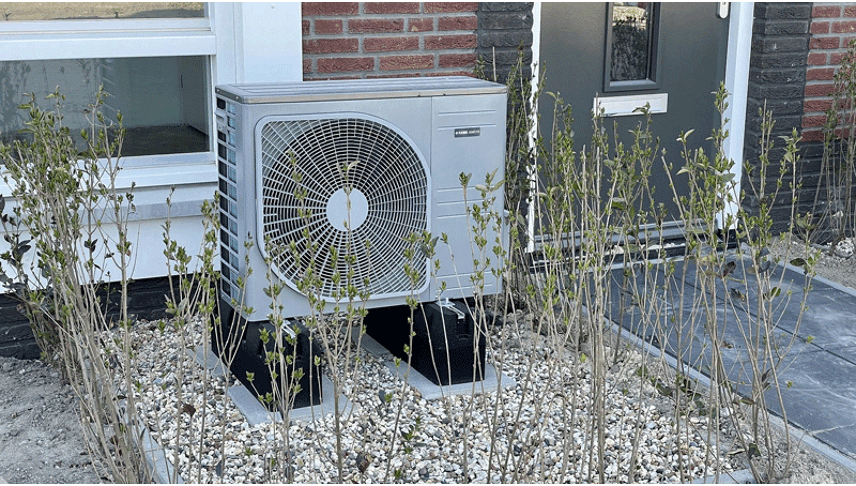Register for free and continue reading
Join our growing army of changemakers and get unlimited access to our premium content

Pictured: A home fitted with a heat pump
That is according to a new briefing from the International Energy Agency (IEA), published as part of its ongoing stocktake of the global energy transition in the run-up to the next UN climate conference in Dubai this winter.
The briefing confirms that, for the second year running, heat pump sales witnessed unprecedented double-digit growth.
The uptick in sales was found to be strongest in the EU, largely due to the bloc’s RePowerEU Plan, tabled to end Russian oil and gas imports by the late 2020s. RePowerEU includes a target for 20 million heat pumps to be installed across the bloc by 2026, then a further 30 million by 2030. Meeting these targets would require deployment rates to at least double.
RePowerEU also details plans to end the installation of building heating systems not capable of using a minimum of 65% of renewable energy from January 2026.
By the IEA’s estimations, EU nations ordered 49% more air-to-water heat pumps in 2022 than 2021, and 19% more air-to-air heat pumps. Almost half of all sales in Europe were attributable to France, Germany and Italy. Indeed, heat pump sales surpassed fossil fuel boiler sales in France for the first time in 2022.
The IEA sees strong future growth for heat pump sales in the EU as likely, due to REPowerEU plans. Under the policy package, 17 member states have implemented or announced bans on pure-play fossil fuel boilers.
Nonetheless, globally, the levels of increased heat pump deployment are not keeping pace with the IEA’s 2050 net-zero scenario. This scenario requires heat pump sales to increase by 15% year-on-year each year in the 2020s, laying the groundwork for heat pumps to meet some 20% of global building heating needs by 2030 – up from 10% at present.
Costs and carbon
In related news, the UK Energy Research Centre (UKERC) has published a review of the economic and emissions-related benefits of heat pump uptake.
The conclusion is that there are “realistic prospects” to significantly reduce the upfront cost of heat pumps this decade, by around 20 to 30%. However, the Centre believes it is “unlikely” for heat pumps to reach price parity with gas boilers by 2030, as the Government is targeting. It notes that a reduction of up to 70% would be needed for air-source heat pumps to meet that vision.
The paper does outline how heat pumps are cheaper to run and maintain than gas boilers, especially in the face of the energy price crisis. It states that, if all suitable residential buildings with fossil heating switched to heat pumps, energy demand would be slashed by 40% and annual savings of £15.9bn realised.
“The upfront cost of the UK’s net-zero transition is an understandable policy priority, but it should not be the only concern,” summarised the authors of the review. “As well as decarbonising home heating, heat pumps offer energy security and efficiency benefits, economic development opportunities, and on a whole lifetime basis they can offer lower and more stable energy bills. This suggests the need for a wider view of low-carbon technologies such as heat pumps, beyond radical cost reduction goals.”
The UK is aiming to boost heat pump installation rates to 600,000 units per year by 2028. However, industry bodies and the government’s own climate advisors have warned that policymakers are not properly planning to deliver this uplift. Ministers claimed last week to be developing new interventions in the heat pump market, to be unveiled later this year.


Please login or Register to leave a comment.